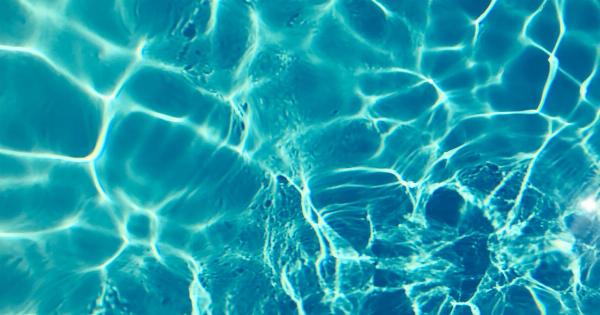As summer approaches, many of us start thinking about our beach bodies and getting ready for the warmer weather. One important aspect of feeling confident and comfortable during this time is understanding your body’s wet retention score.
This score can help you determine if your body is retaining too much water and what steps you can take to reduce it. In this article, we will discuss what wet retention score is, how it is measured, and tips to improve it.
What is Wet Retention Score?
Wet retention score, also known as water retention or edema, refers to the excess fluid accumulation in the body’s tissues.
It can affect both men and women, and it is a common condition that can be caused by various factors such as hormonal changes, poor diet, medication side effects, or certain health conditions. Understanding your wet retention score can help you identify if your body is holding onto excessive water and take appropriate steps to address it.
Measuring Wet Retention Score
While there is no standardized scale to measure wet retention score, there are some signs and symptoms that can indicate if you have a higher water retention level.
These include swelling in the hands, feet, or ankles, bloating, puffiness in the face, and weight fluctuations caused by water retention. However, to get a more accurate measure, it is recommended to consult with a healthcare professional who may perform additional tests or assessments.
Tips to Improve Your Wet Retention Score
If you are concerned about your wet retention score and want to reduce water retention, here are some tips to incorporate into your daily routine:.
1. Stay Hydrated
It may seem counterintuitive, but drinking enough water can actually help reduce water retention. When your body is dehydrated, it tends to hold onto water to prevent further loss.
By staying hydrated, your body recognizes that it is receiving enough fluid and, as a result, can release excess water.
2. Watch Your Sodium Intake
Excessive sodium consumption is one of the main culprits behind water retention. High sodium levels can disrupt the balance of fluids in your body, causing it to retain water.
Be mindful of your sodium intake and try to limit processed and packaged foods that are typically high in sodium. Instead, opt for fresh, whole foods with lower sodium content.
3. Increase Potassium-Rich Foods
Potassium is a mineral that helps regulate fluid balance in the body. Consuming foods rich in potassium can help decrease water retention. Some potassium-rich food options include bananas, avocados, spinach, sweet potatoes, and yogurt.
4. Eat a Balanced Diet
Following a balanced diet that includes a variety of fruits, vegetables, whole grains, lean proteins, and healthy fats can help maintain overall health, including preventing water retention.
Avoid excessive consumption of processed foods, refined sugars, and unhealthy fats.
5. Exercise Regularly
Physical activity can help improve blood circulation and reduce water retention. Engaging in exercises such as cardio, strength training, or yoga can promote lymphatic drainage and help flush out excess fluid from the body.
6. Elevate Your Legs
If you experience swelling in your feet or ankles, elevating your legs above heart level for short periods during the day can help reduce water retention.
This position promotes better blood flow and can relieve swelling caused by excess fluid accumulation.
7. Limit Alcohol Consumption
Alcohol can have dehydrating effects on the body, which may lead to increased water retention. Limiting your alcohol intake can help maintain a healthy fluid balance and reduce the risk of fluid retention.
8. Manage Stress Levels
Chronic stress can have a negative impact on your body’s fluid balance. When you’re stressed, your body releases cortisol, a hormone that can affect the way your body stores and regulates fluids.
Finding healthy ways to manage stress, such as practicing meditation, yoga, or engaging in hobbies, can help prevent water retention.
9. Consider Natural Diuretics
Some natural diuretics may help reduce water retention. These include foods like cucumber, watermelon, celery, and herbal teas such as dandelion or green tea.
However, it’s important to consult with a healthcare professional before incorporating natural diuretics into your routine, especially if you have any underlying health conditions or are taking medication.
10. Seek Professional Advice
If you have persistent water retention or suspect an underlying health condition, it’s crucial to seek professional advice.
A healthcare provider can evaluate your symptoms, conduct further tests if necessary, and provide personalized recommendations to manage your wet retention score effectively.
By understanding your wet retention score and implementing these lifestyle changes, you can prepare your body for a more enjoyable and comfortable summer.
Stay hydrated, maintain a balanced diet, and prioritize your overall well-being to minimize water retention and promote a healthier you.































